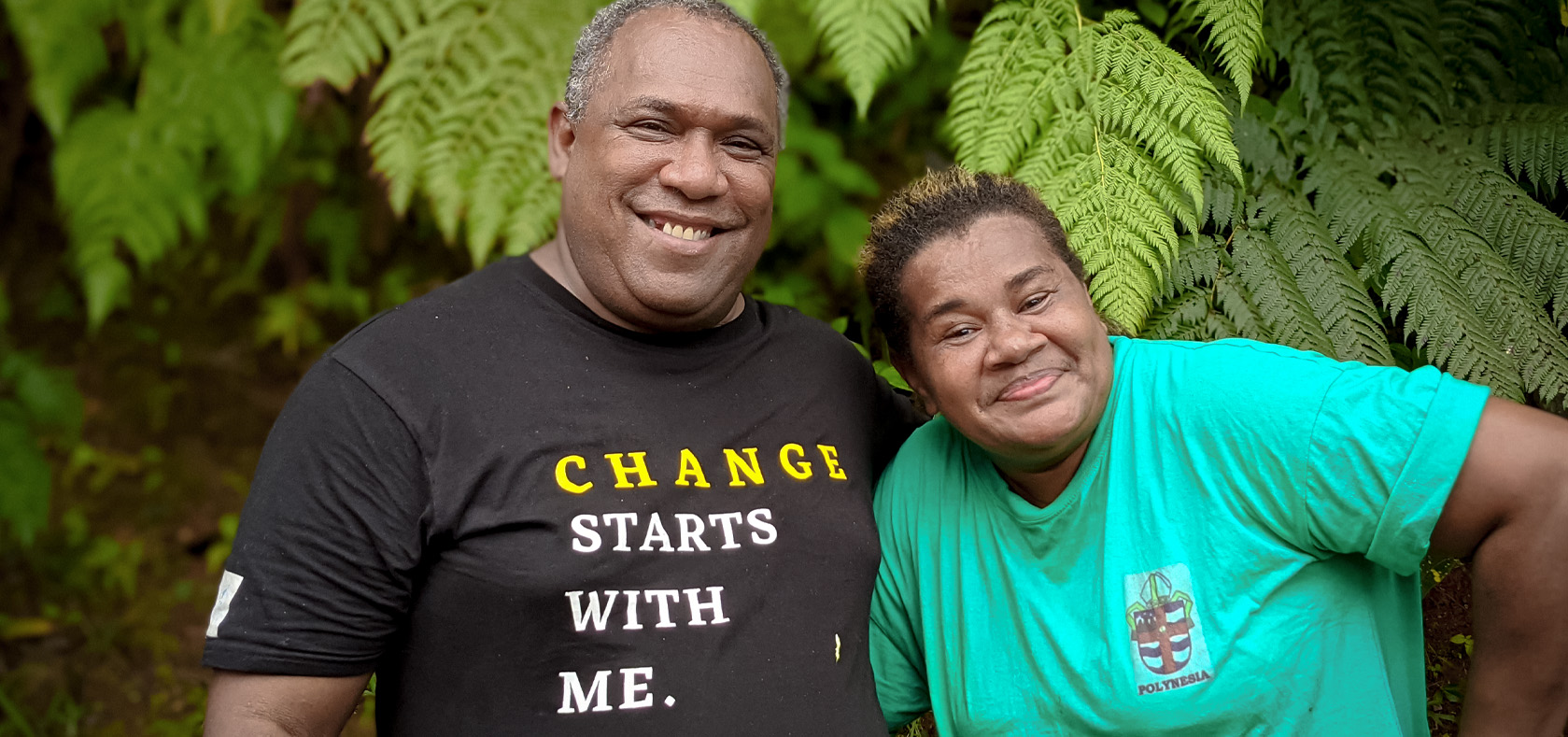In the words of: Tomu Dari: “I‘ve lived here my whole life. If I can change, they can”
Members of three Christian communities in Fiji are strengthening their leadership to create a community that rejects violence against women altogether using faith-based approaches, to prevent it from happening. As a community activist, Tomu Dari creates waves of influence among the men and boys in his community to reject and prevent violence against women.Date:


To some men, women are second-class citizens, so they use violence. I know because I was one of them.
One afternoon, my wife sent me a picture from the training. In the picture, men were using all sorts of violence. I saw myself in those men. For the rest of the afternoon, I kept on thinking about the times I used violence on my wife and kids. Weeks later, Reverend Jone [Tuiwaiwai] and a few others came to my house, encouraging me to become a community activist. I went to the training and learned about biblical texts. There were verses about how God created men and women equal, giving them authority to look after each other. That was eye-opening.
See, we are brought up to listen to the pastors, to follow God, and to obey His teaching. So, when we learn the biblical texts, and when the pastor digs deeper into the teaching, we realize. We learn. We follow.
Now I’m a community activist. What do I do? I only send messages. When I see men on the road, I invite them for tea. Sometimes, when I see them having kava [a traditional Fijian drink], I buy them one. That’s how we start the conversation. They say you’re wearing a skirt! Yes, it takes time. You try three or four times, and they finally listen to you. I tell them my own story about me and my wife. How I used to be, how I tried to change, and look how happy we are now. She keeps me on the right track. I follow her footsteps. I tell them to do something different for a while, see what happens. Some call me later and say, Tomu, she really loves it!
I was brought up here, and have lived here all my life. If I can change, they can. I spread the message for them to change, so they can spread the message to others. This is my community. I want to see people change, and I’m proud to be part of that change.
One thing I learned, when we share our power as man and wife, all of us benefit. We are happy at home.
Read Tomu’s wife, Alisi Dari’s story here
Alisi Dari (right) is making a positive influence in her community and at home. She poses with her husband, Tomu (left) who followed her footsteps to become a Community Activist with the House of Sarah in Newtown, Suva. Photo: UN Women/Miho Watanabe
Since 2018, faith-based non-governmental organisation House of Sarah has been piloting the Preventing Violence Against Women in Fiji’s Faith Settings initiative in three Christian communities in Fiji. House of Sarah is supported by UN Women through the Pacific Partnership to End Violence Against Women and Girls (Pacific Partnership), which is funded primarily by the European Union, the Governments of Australia and New Zealand, UN Women, and co-funded by the Fiji Women’s Fund (also supported by the Australian Government). House of Sarah has been working to respond to violence against women and children in Fiji since 2009, and began its prevention work in 2017.
Through strategic partnerships with faith leaders, and those in the education, sport and employment sectors, UN Women has been working to prevent violence against women and girls in Fiji.
Interview transcript edited for clarity.
Interviewed by Miho Watanabe
Contributors: Lisa Smyth, Reverend Sereima Lomaloma and Alisi Qaiqaica (House of Sarah), Shazia Usman and Shabina Khan (UN Women), Michelle Reddy (Fiji Women’s Fund)
